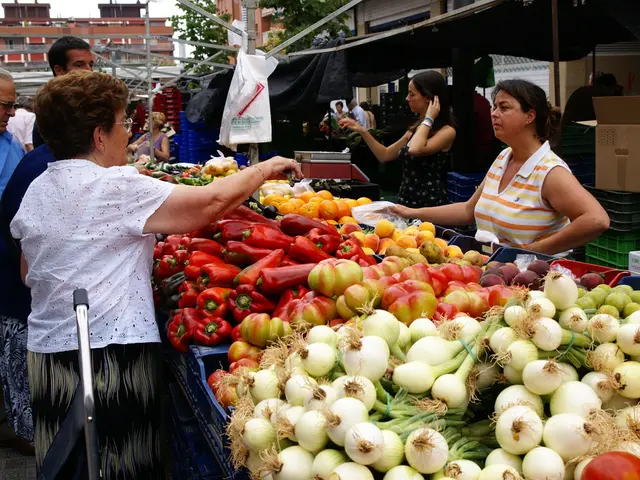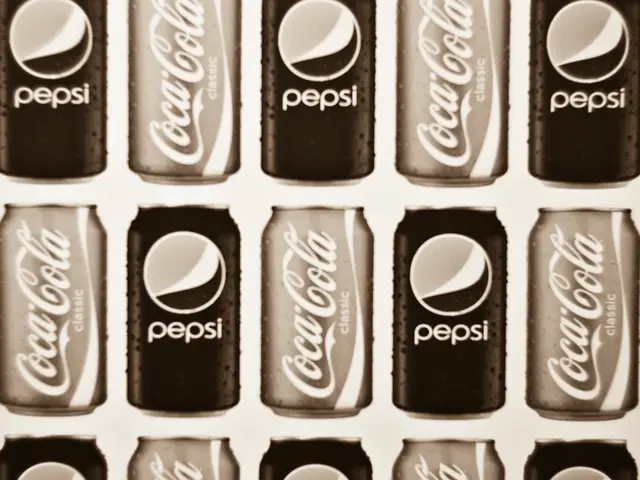International Community Urges Unity across the Atlantic Ocean as Trump and Putin Prepare for Meeting in Alaska
In an unprecedented show of unity, President Donald Trump hosted a virtual multilateral meeting at the White House on August 18, 2025. The gathering brought together seven European leaders, including Ukrainian President Volodymyr Zelenskyy, to discuss the ongoing conflict between Ukraine and Russia and the need for peace efforts and security guarantees.
The core focus of the meeting was to agree on terms that would lead to a ceasefire and provide long-term security for Ukraine. All participants expressed strong support for a trilateral meeting involving Trump, Zelenskyy, and Russian President Vladimir Putin as a critical step towards ending the conflict.
Trump signaled his willingness to provide U.S. security guarantees for Ukraine, similar in concept to NATO’s Article 5 collective defense clause. European leaders echoed support for coordinated security arrangements to bolster Ukraine’s sovereignty and security.
The participants stressed the importance of direct dialogue between Ukraine, Russia, and the U.S. to negotiate peace terms. Suggestions were made to expand the talks to a quadrilateral format, including European representatives, to coordinate security guarantees.
Finland's leader highlighted the meeting's symbolic significance as a united transatlantic front assisting Ukraine. Leaders expressed optimism that, like past conflicts, a solution may be found in 2025.
This meeting marked a shift from Trump's earlier skepticism about ceasefires. After his recent meeting with Putin, Trump appeared more open to peace negotiations and security commitments for Ukraine.
The EU foreign ministers of Italy, Finland, Poland, NATO's Secretary-General, Ursula von der Leyen (European Commission), and Antonio Costa (European Council) are also expected to participate in the meeting. German Chancellor Friedrich Merz, French President Emmanuel Macron, and British Prime Minister Keir Starmer will chair an emergency meeting of the coalition of the willing on Wednesday.
The upcoming summit has led to a flurry of contacts between European heads of state who fear being sidelined from a deal they will probably have to uphold. The EU is working on more sanctions against Russia, more military support for Ukraine, and more support for Ukraine's budgetary needs and accession process to join the EU.
In a joint statement, the leaders of Finland, France, Germany, Italy, Poland, the UK, and European Commission reiterated that "the path to peace in Ukraine cannot be decided without Ukraine." The emergency meeting has been called to discuss a peace in Ukraine that protects vital security interests.
The situation and latest developments in the Middle East, including the catastrophic humanitarian situation in Gaza, were also on the agenda for Monday's foreign affairs council.
The meeting was hastily convened following the announcement of a Trump-Putin summit on 15 August in Alaska. However, Ukrainian President Volodymyr Zelenskyy is not expected to join the Trump-Putin summit. Trump has said he hopes to chair a trilateral meeting involving the Ukrainian prime minister.
This diplomatic step, taken shortly after Trump’s direct talks with Putin, reflects evolving dynamics in the Russia-Ukraine conflict and greater coordination among Western allies. However, Russia remains resistant to the proposed trilateral meeting.
[1] The White House Press Release, August 18, 2025. [2] European Commission Press Release, August 18, 2025. [3] Finnish President's Office Press Release, August 18, 2025. [4] Ukrainian President's Office Press Release, August 18, 2025.
- The virtual multilateral meeting at the White House, centered around war-and-conflicts, inclusive of discussions on the ongoing conflict between Ukraine and Russia, also included policy-and-legislation discussions regarding U.S. security guarantees for Ukraine, similar to NATO’s Article 5 collective defense clause, and coordinated security arrangements by European leaders to bolster Ukraine’s sovereignty and security.
- The ongoing peace negotiations and security guarantees debates, a part of general-news, have led to the United Nations Security Council announcing the need for a special session to discuss potential peace terms, direct dialogue between Ukraine, Russia, and the U.S., and extending the talks to a quadrilateral format involving European representatives to coordinate security guarantees.







